Our 1st Community-based Interact Club
Posted by Art Harrington on Feb 01, 2015
One of the most exciting developments in Youth Services in our district this year is the creation by the Wickenburg Rotary Club of a new community-based Interact club.
While everyone is probably aware that Rotaract clubs can be either campus-based or community-based, and that we have both kinds in our district, most Rotarians do not know that the same is true for Interact clubs. Up until this time, all of our 40 other Interact clubs in D5490 have been campus-based. Wickenburg Rotary has become a pioneer in our district by “thinking outside the box” and forming a community-based Interact club, which they feel will best fit their community.
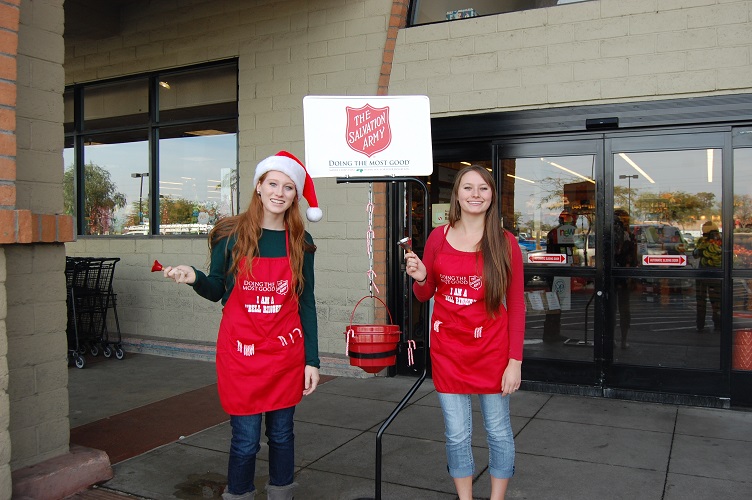
Vice President Courtney Jones and President Melodie Prevost lead by example, demonstrating Service Above Self,
ringing the bells for Salvation Army during the Christmas season.
Rotarians Laura Coughanour and Ben Ruoti are serving as the Advisors to the new Wickenburg Interact Club. The club itself is led by President Melodie Prevost, VP Courtney Jones, Secretary Rachel Eroh and Treasurer Austin Coughanour. The new club, which actually meets on the Wickenburg High School campus, has 15 strong, consistent members, and they expect their membership to grow as they get more service projects underway, and as the Interact club becomes better-known in the community. Wickenburg Rotary recently hosted an installation banquet for the Interact officers and new members, and the Rotary club brings the Interactors, on a rotation basis, to their meetings to have them report on their Interact events and projects.
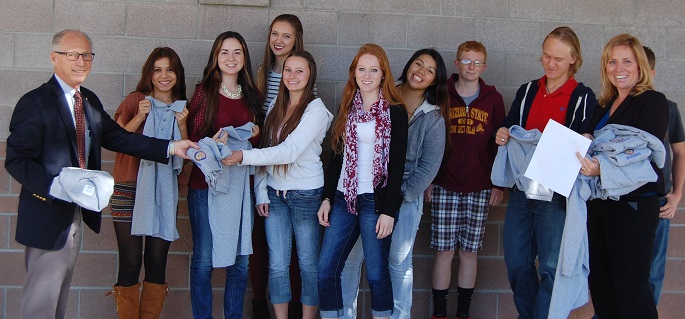
Rotarian Advisors Ben Ruoti and Laura Coughanour present Wickenburg Interact Club
shirts to President Melodie Prevost and her club members.
So what advantages do community-based Interact clubs have? They can be easier to organize and administer, since neither a Faculty Advisor nor endorsement by a school administration are required. In addition, they can draw members who are within the full age-range of Interact (ages 12-18) from any public, charter or private school in the area, as well as from the community’s home-schooled youth. The club’s funds can be held by the sponsoring Rotary club, or in a separate bank account under the Rotary club’s tax ID number, instead of being held by the school.
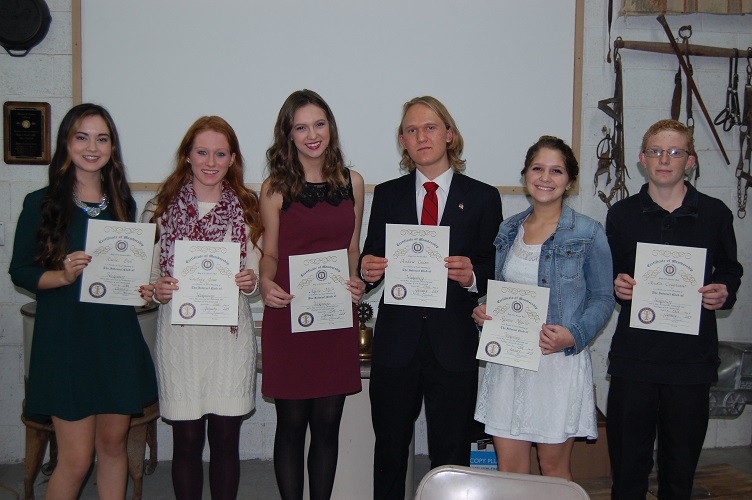
Among the charter club members receiving their certificates were (L-R) Club Secretary Rachel Eroh,
Vice President Courtney Jones, Kylie Mills, Drew Carlson, Ryanne Mueller and Club Treasurer Austin Coughanour.
On the flip side of the coin, a community-based Interact club cannot receive tax credit donations to public schools, even if they happen to meet at a school, since they are not a school-sponsored club. They also are not eligible to use school-provided transportation for their trips and projects, and they would not be covered by any school insurance. (However, any Interact club, due to its required sponsorship by a Rotary club, is covered under Rotary’s general liability insurance policy.)
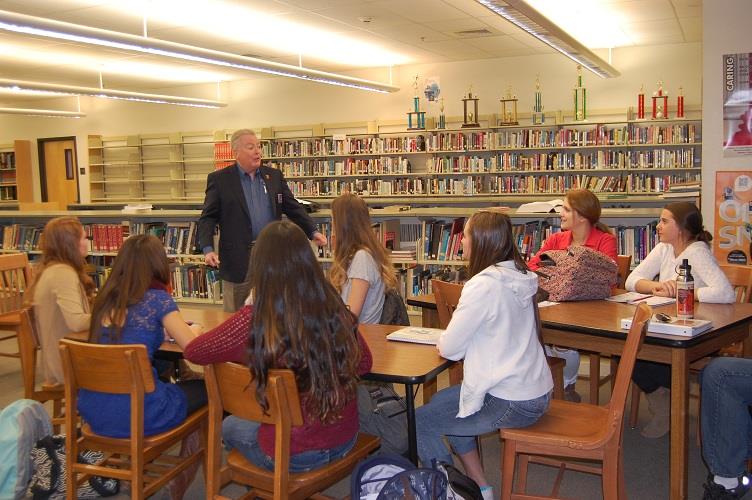
Assistant Governor and District RYLA Chair Jon Bauman speaking to the Interact members about the opportunities
that are available to them through Interact and Rotary’s other Youth Services programs.
In either case, whether campus or community-based, the primary responsibility for the success of every Interact club rests with its sponsoring Rotary club. In too many cases, though, “sponsorship” of campus-based clubs has amounted to a token written endorsement and minimal actual involvement by the Rotarians — unfairly dumping all responsibility on a school Faculty Advisor.
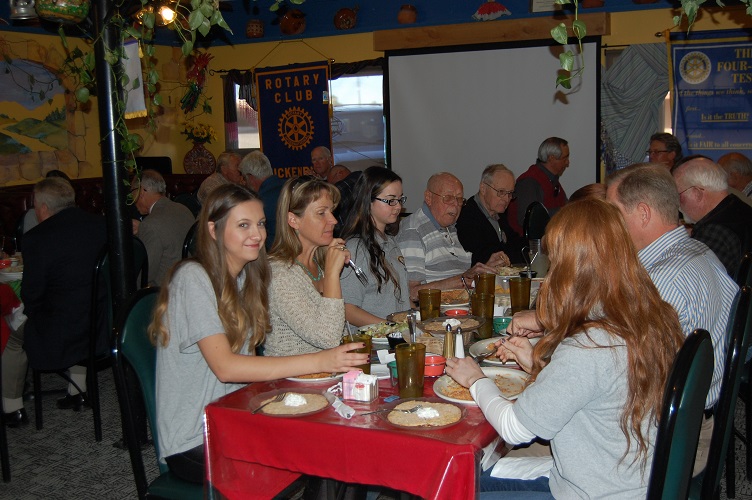
Wickenburg Rotary hosted the installation banquet for the Interact offers and new club members.
We applaud the Wickenburg Rotary Club on their willingness to commit their support and take full responsibility for this new Interact club they have begun. They are off to a great start, and we wish them the very best!
